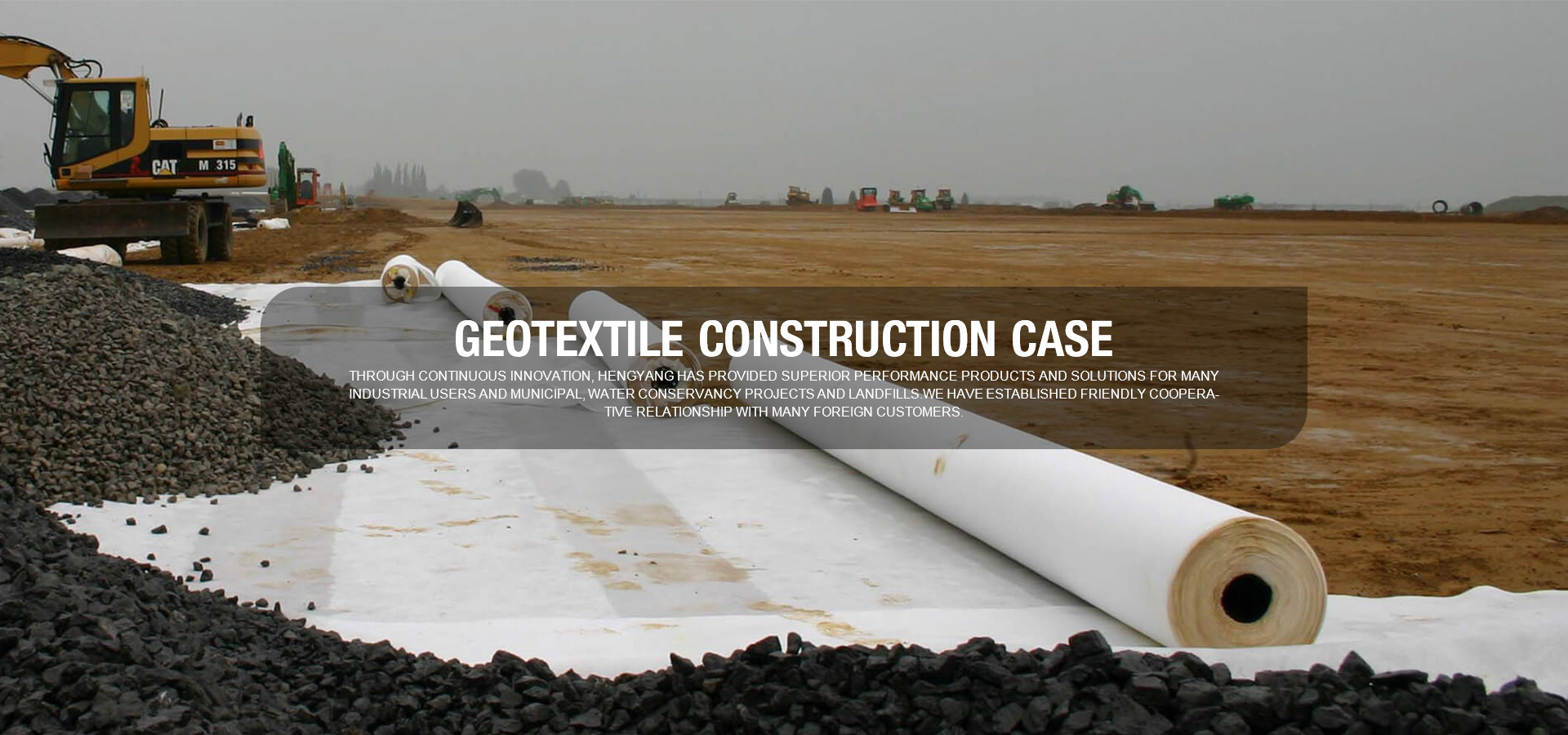What is the application of geomembrane in road construction?
Release time:
2024-06-18
The selection of the appropriate geomembrane material for road construction depends on factors such as site-specific conditions, expected loads, chemical exposure (e.g., deicing salts), and long-term durability requirements.
In road construction, geomembranes play a crucial role in providing a barrier against water infiltration and enhancing the overall stability and longevity of roads, particularly in areas prone to wet or unstable soil conditions. Some specific applications of geomembranes in road construction include:
1. Subgrade Stabilization: Geomembranes can be used beneath the roadbed to prevent the upward migration of groundwater, which can lead to frost heave, softening of the subgrade, and ultimately, pavement failure. By blocking water movement, they help maintain the structural integrity of the road.

2. Separation Layer: In multi-layered road constructions, geomembranes serve as separation layers between different soil types or between the subgrade and aggregate layers. This prevents the mixing of incompatible soils, reduces the risk of differential settlement, and enhances load distribution.
3. Pavement Waterproofing: For roads built over weak or porous soils, or in areas with high water tables, geomembranes can be installed beneath the pavement to act as a waterproofing layer. This prevents water from seeping into the subbase and causing erosion or weakening the foundation.
4. Bridge Abutments and Culverts: Geomembranes are used to line the areas around bridge abutments and culverts to prevent erosion caused by water flow and to protect the surrounding soil structure from degradation.
5. Drainage Control: In road construction, proper drainage is critical to preventing water accumulation that can damage the road surface. Geomembranes can be incorporated into drainage systems to direct water flow, serving as a lining in ditches, French drains, or other drainage structures.
6. Salt Storage Containment: Although not directly part of the road construction itself, geomembranes are commonly used to line salt storage facilities to prevent salt from leaching into the ground and contaminating groundwater, while also protecting the stored material from moisture.
The selection of the appropriate geomembrane material for road construction depends on factors such as site-specific conditions, expected loads, chemical exposure (e.g., deicing salts), and long-term durability requirements. Proper installation techniques, including adequate overlap and secure sealing of seams, are essential to ensure the effectiveness of geomembranes in these applications.
Latest News
Why Durable Oil Containment Geomembranes Are Essential for Construction Sites
Why Durable Oil Containment Geomembranes Are Essential for Construction Sites Introduction: The Importance of Oil Containment in Construction In the construction industry, managing materials responsibly is paramount. Among the most significant issues is the risk of oil spills, which can have dire consequences for the environment and public health. Oil containment geomembranes serve as a fundamenta
2026-02-19
Understanding Quality Root Barrier Geomembranes: Essential Insights for Construction Projects
In the realm of construction and landscaping, the use of quality root barrier geomembranes plays a vital role in ensuring the integrity and longevity of structures. Root barriers are specially designed membranes that prevent the penetration of invasive root systems from trees and plants into critical infrastructure. Understanding the significance of these products can greatly enhance the success o
2026-02-16
The Cost-Effectiveness of Investing in Chemical-Resistant Geomembranes: A Comprehensive Analysis
The Cost-Effectiveness of Investing in Chemical-Resistant Geomembranes Table of Contents 1. Introduction to Chemical-Resistant Geomembranes 2. What Are Geomembranes? 3. Types of Geomembranes and Their Characteristics 4. The Economic Benefits of Chemical-Resistant Geomembranes 5. Applications of Chemical-Resistant Geomembranes 6. Investing in Geomembranes: A Long-Term Persp
2026-02-13
Revolutionizing Construction: The Benefits of Customized Floating Cover Geomembranes
Customized floating cover geomembranes are innovative solutions designed for a variety of applications in the construction and landscaping industries. These specialized membranes serve as protective barriers, effectively addressing several environmental and structural concerns. Their unique features make them particularly beneficial in construction sites and water management systems. One of the pr
2026-02-10
Understanding the Essential Role of Customized Biogas Digester Geomembrane in Modern Construction
Understanding the Essential Role of Customized Biogas Digester Geomembrane in Modern Construction In the realm of construction, innovation and sustainability are paramount. One significant advancement that has emerged is the use of customized biogas digester geomembranes. These specialized membranes play a crucial role in enhancing the efficiency of biogas systems and improving environmental susta
2026-02-07
The Benefits of Customized Dam Liner Geomembranes in Construction
In the construction and landscaping sectors, customized dam liner geomembranes are pivotal for effective water management and site protection. These liners are engineered to create barriers, preventing the migration of fluids and protecting the integrity of structures. Customized solutions cater to specific project needs, providing enhanced functionality and improved performance compared to standa
2026-02-04




